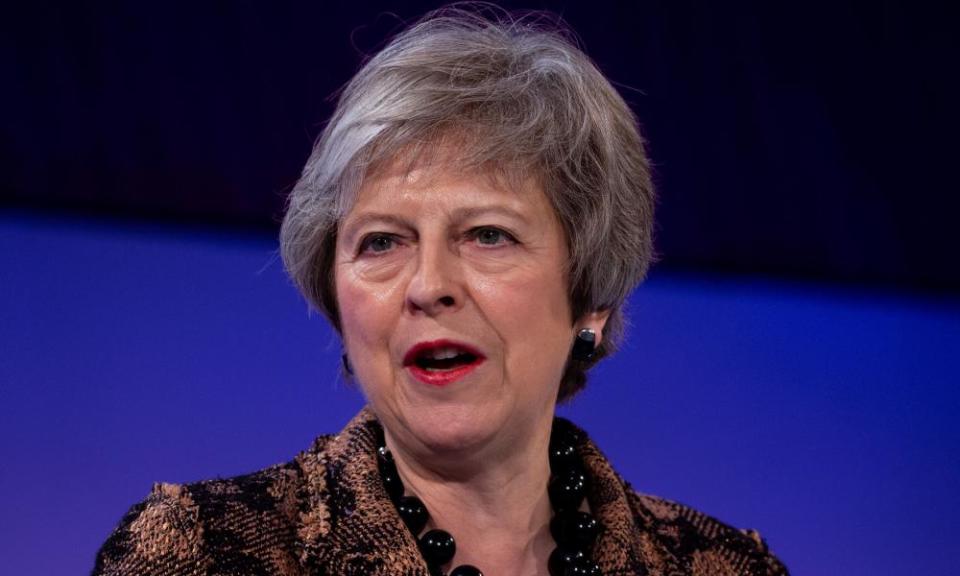The Guardian view on burning injustices: fanning Brexit’s flames

One week after the prime minister released her proposal to leave the European Union, it remains the only Brexit plan on the right of politics. Others have desires but none has been able to answer the question of what can actually be done to leave. Theresa May, to her credit, has. She promises an eventual rupture with the EU in some way which is undefined but which will be costly in economic terms, especially for voters in leave areas. Her argument is reasonable: this is the least worst option. Labour disagrees: it has its own least worst option. Brexit will cost but that is the price of respecting the referendum. The hard Brexiters, whether in the Conservative party or the Democratic Unionist Party, are different. They produce absurd wishlists to burnish their Eurosceptic credentials but do little to further the public understanding of the trade-offs involved. No wonder there are few takers for the hardliners’ heady version of Brexit, an intoxicant that promises a hangover of historic proportions. The leavers’ plan for leaving the EU? Leaving appears to be the whole plan.
Missing from Conservative politics is how to heal the divisions that drove the vote for Brexit. The best that rightwingers seem able to do is drape a union jack over the schisms. Brexit had roots in hostility to immigrants and nostalgia for empire. There was an undoubted revolt of the regions and the left behind in them. Global change had hit both hard, leaving a deindustrialised periphery in the most centralised state in western Europe. But the sucker punch was the Tory policy of austerity, which made the Brexit vote possible by allowing elite Euroscepticism to combine perversely with popular anger. More pertinently, where are the ideas that will reverse the economic inequality that bedevils this country? Where is the money to bridge the regional divide? Where is the offer to the young, who are growing up in the expectation of being worse off than their parents? The Tories have turned a blind eye to the living standards crisis – even though real wages have not returned to their 2008 levels.
Mrs May had been attuned to these questions: she initially declared a clean break with metropolitan elitism and said she would put out the burning injustices of Britain. Mrs May wanted to signal that the lessons of the referendum had been learned. Yet in the words of her most memorable phrase: nothing has changed. Whitehall has seen its energies consumed with the technicalities of EU withdrawal. Instead of dealing with the concrete experience of Britain’s spluttering economy, the Brexit debate has become about abstract economic concepts about free trade and WTO rules which have diverted attention from the real problems Britain is facing.
These stem from the model of capitalism that Britain is evolving, which sees us becoming the financial centre of a globalised economy and using low-value services to provide mass employment. At the same time, we have been reducing workers’ bargaining power and promoting employment practices that engender insecurity. This is a petri dish for resentment and risks incubating bacterial diseases that have the potential to spawn Brexit-sized epidemics. Since the early 1970s Britain’s fissiparous tendencies have been managed by references back to the people, with an unprecedented 11 referendums at UK or devolved-nation level. We may yet resort to another to try to sort out this mess.
What has been exposed is how difficult it is for any incumbent government to survive the political and economic shock of withdrawal from a union in which we are deeply enmeshed. Conservative ministers mouth the words that austerity is over and campaigned last year on a manifesto that rejected the “cult of selfish individualism”. Labour wishes to roll back the Thatcherite settlement. It is a terrible indictment that the cost of failing to address inequalities is losing an EU membership that played little part in creating them.

 Yahoo News
Yahoo News 